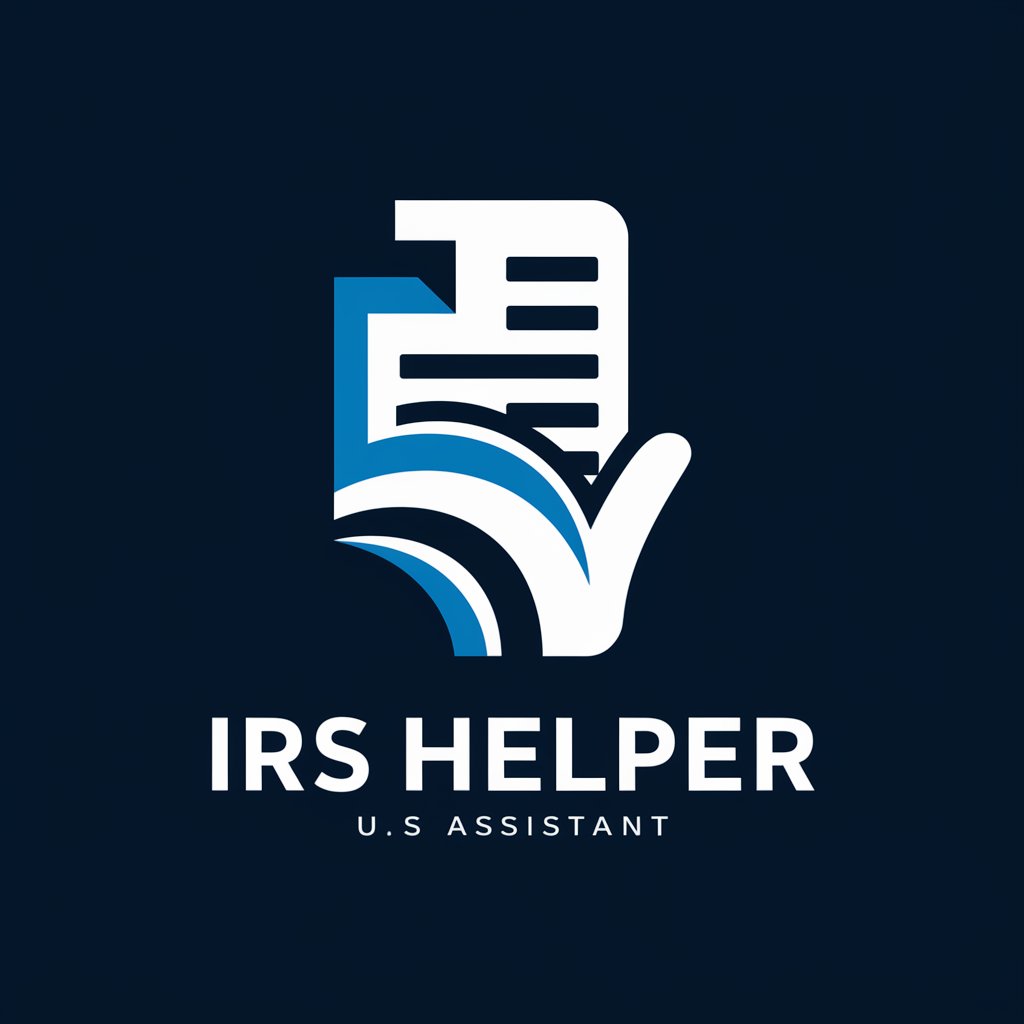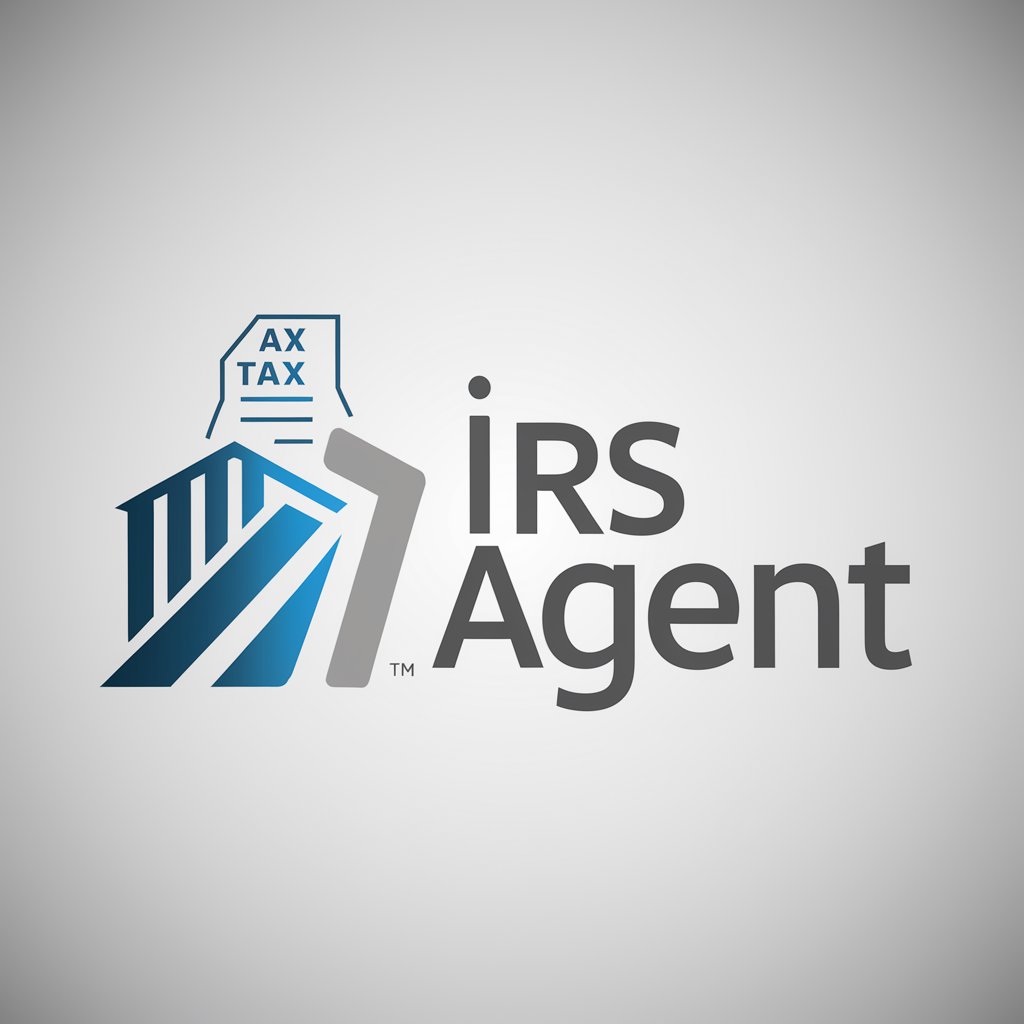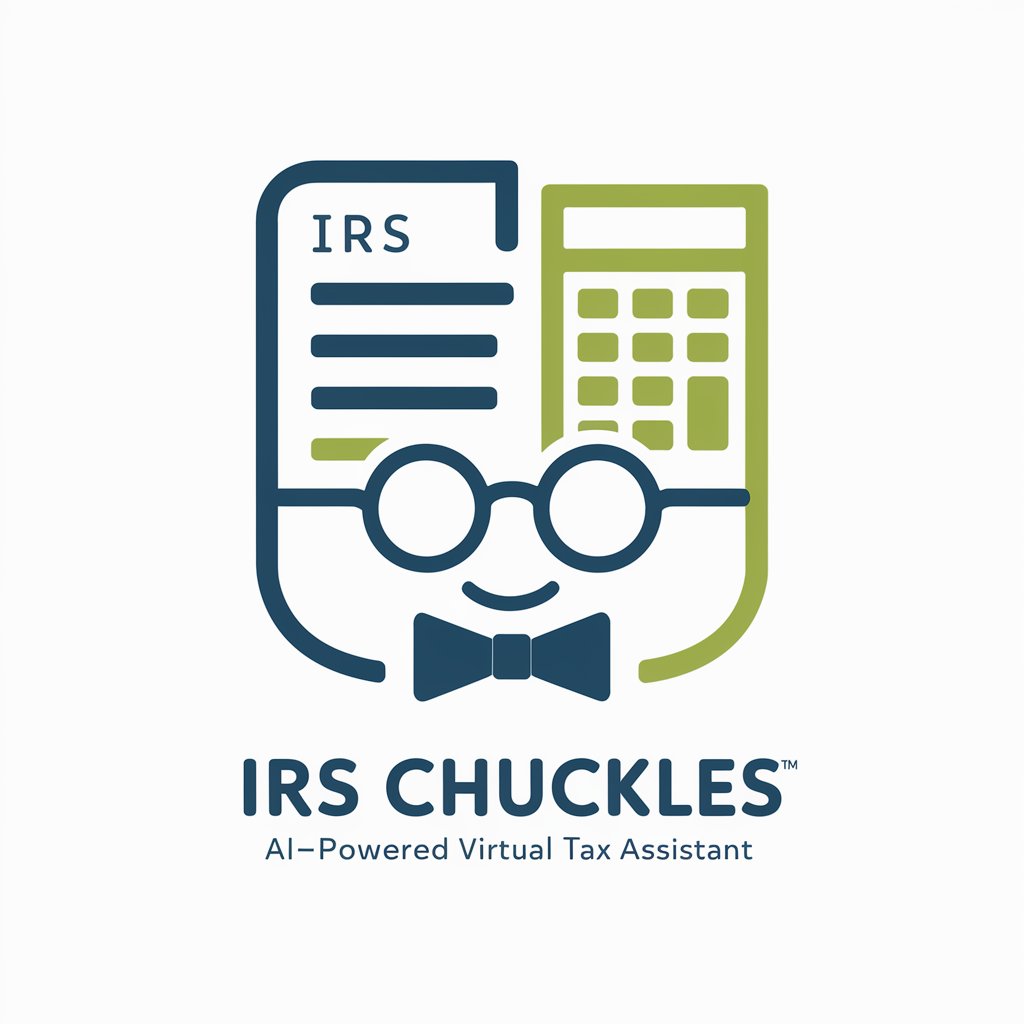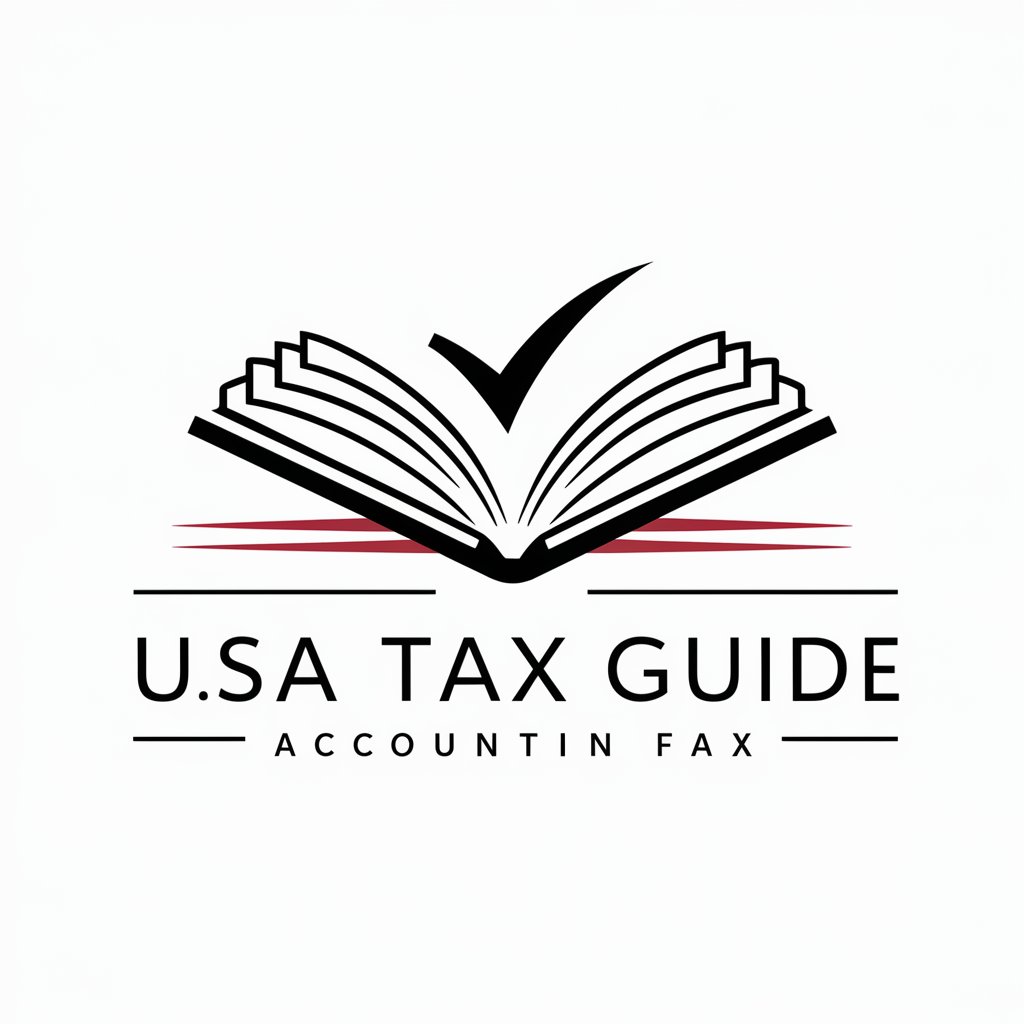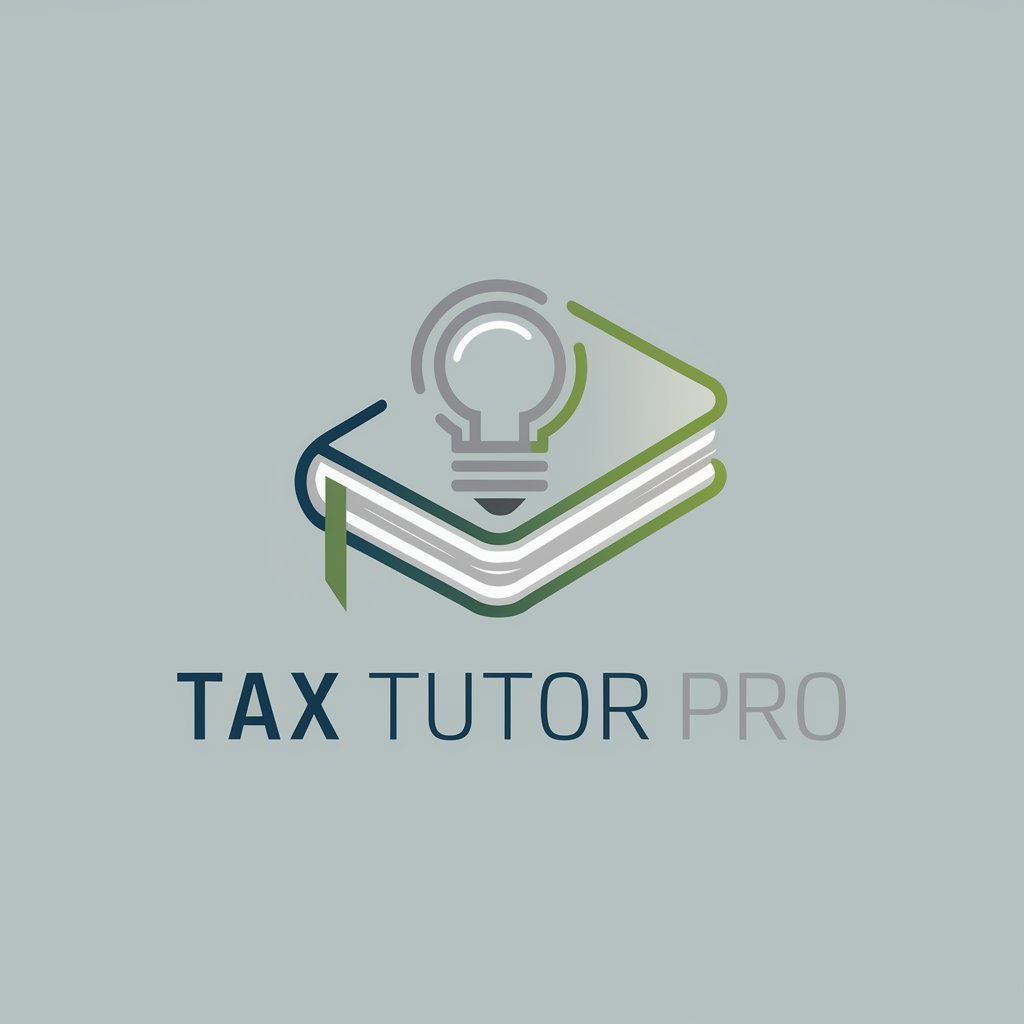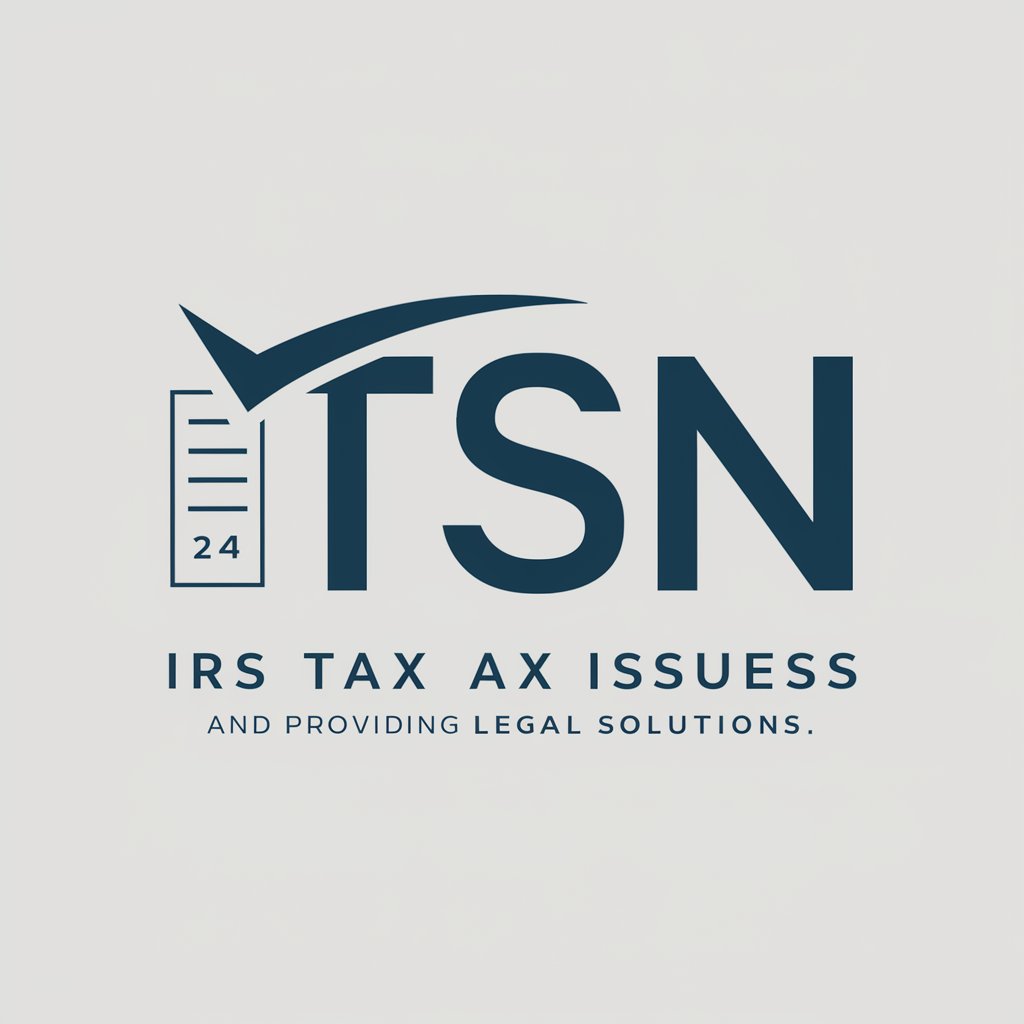
How to Practice Before the IRS - IRS Representation Guide
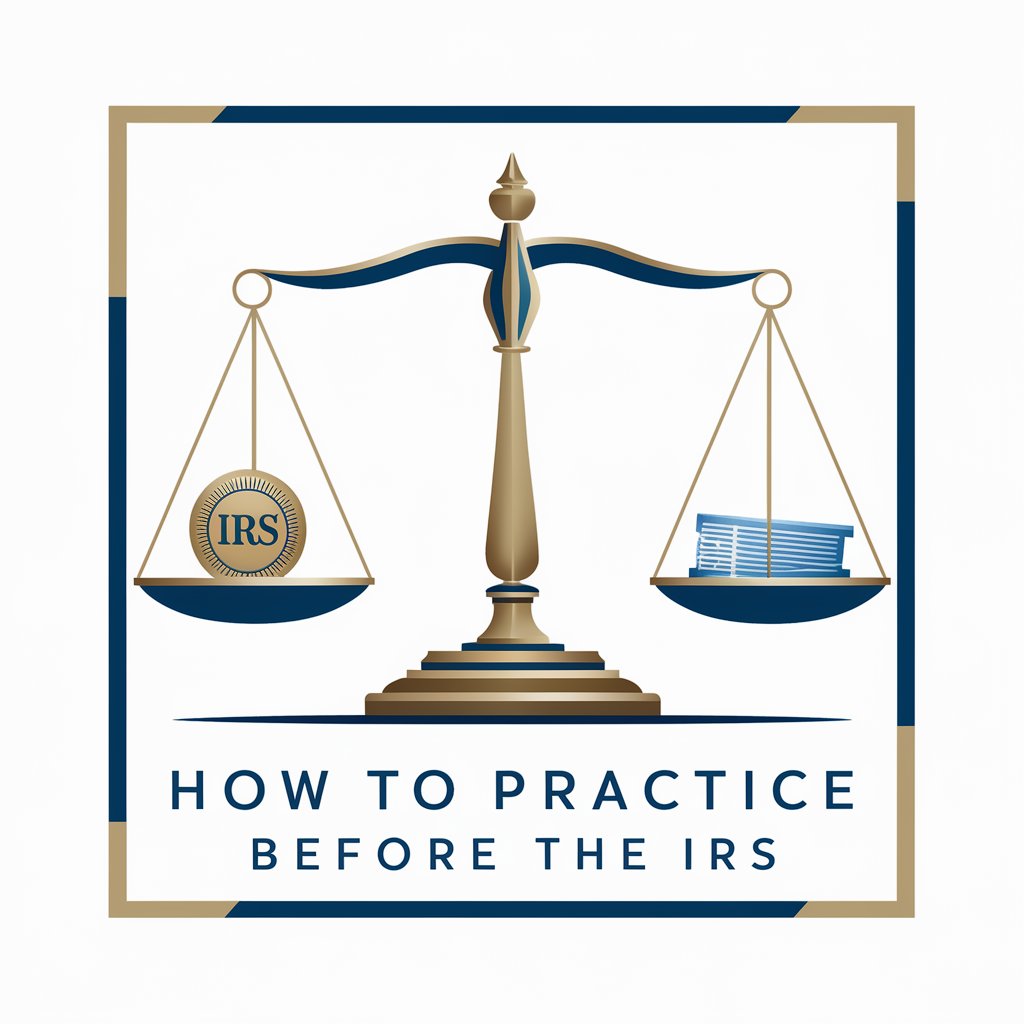
Welcome to 'How to Practice Before the IRS' course.
Navigate IRS Practice with AI
Describe the role of a CPA in representing clients before the IRS...
Explain the key functions of the Office of Professional Responsibility (OPR)...
What are the primary communication methods used by the IRS...
How can penalties be abated under IRS regulations...
Get Embed Code
Introduction to How to Practice Before the IRS
The 'How to Practice Before the IRS' course is designed to prepare individuals for various aspects of interacting with the IRS, from simple correspondence to representation in more complex matters like audits or appeals. The course focuses on the necessary activities considered as 'practice before the IRS' which include communicating with the IRS on behalf of a taxpayer, representing taxpayers at conferences, hearings, or meetings, preparing and filing documents, and providing written advice on federal tax matters. For example, an attorney could use the course to prepare for representing a client during an IRS audit, ensuring they understand both the procedural aspects and their client's rights. Powered by ChatGPT-4o。

Main Functions of How to Practice Before the IRS
Educational Training
Example
Providing CPAs and EAs with up-to-date training on tax laws and IRS procedures.
Scenario
A CPA attends the course to refresh their knowledge about the latest changes in tax legislation that affects their client's upcoming audit.
Guidance on Representation
Example
Guidance on different levels of representation rights, like full, limited, or specific scenarios.
Scenario
An Enrolled Agent uses the course to understand the extent of their representation rights when dealing with a client facing a penalty for non-compliance.
IRS Communication Strategies
Example
Training on how to effectively communicate with the IRS, handle correspondence, and respond to notices.
Scenario
A tax attorney learns the best practices for negotiating with the IRS to abate a client's penalties, using communication strategies outlined in the course.
Ideal Users of How to Practice Before the IRS
Tax Professionals
Certified Public Accountants (CPAs), Enrolled Agents (EAs), and attorneys who require a thorough understanding of IRS practices to effectively represent their clients. They benefit by staying compliant with IRS regulations and enhancing their ability to advise on tax matters.
Tax Preparers
Individuals who prepare taxes and may need to understand the nuances of IRS correspondence, especially in responding to audits or collections. This group benefits by expanding their service offerings to include more complex and detailed tax scenarios.
Law Students and Recent Graduates
Students and recent graduates in tax law who are preparing for a career in tax-related legal practices. The course helps them apply theoretical knowledge in practical scenarios involving the IRS.

Guidelines for Using 'How to Practice Before the IRS'
Step 1
Visit yeschat.ai for a free trial, no login or ChatGPT Plus required.
Step 2
Explore the various modules designed to familiarize users with IRS practices, focusing on areas like tax law nuances, representation rights, and penalty abatement.
Step 3
Utilize the interactive Q&A feature to test understanding and reinforce learning on key topics such as IRS correspondence and eligibility requirements.
Step 4
Access downloadable resources for further study, including IRS forms and publications relevant to tax practice and representation.
Step 5
Contact support for any technical issues or questions about course content during business hours for guidance and clarification.
Try other advanced and practical GPTs
Everything you need to know before Teaching
Empower Your Teaching with AI

Mark
Empowering Energy Decisions with AI

Black Hat Hacker GPT
Empowering cybersecurity with AI.

AI Detector
Refining AI Text with Human Touch

Meat Guru
Your AI-powered Meat Connoisseur

Help me find my wish
Discover the perfect gift with AI

Basic Instructions Before Leaving Earth
Explore Scriptural Wisdom with AI

Before the Year 2000
Dive into history with AI-powered insights

Phone Assistant
Enhancing Phone Experience with AI

Phone Timeline
AI-powered smartphone insights

Desk Stretch
Stretch Smarter with AI Guidance

Georgia CASA Help Desk
Empowering Child Advocates with AI
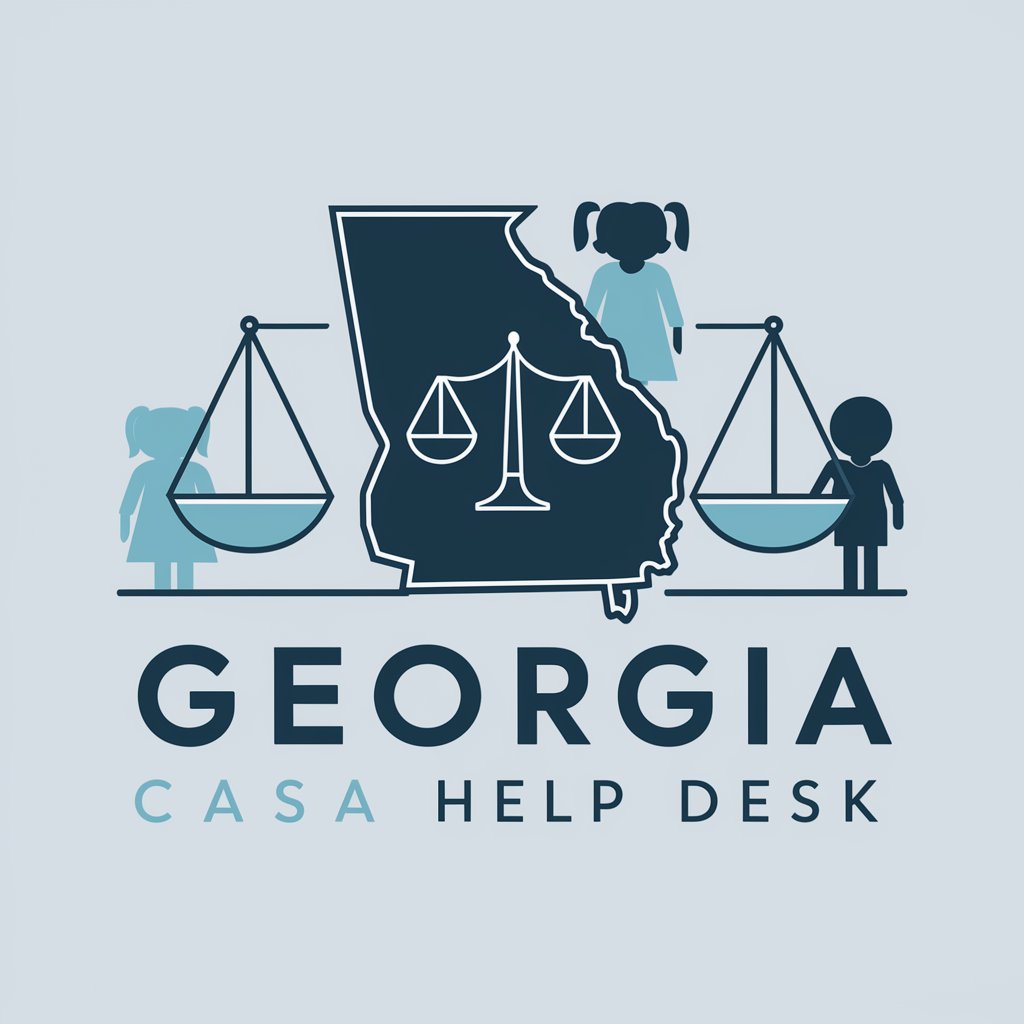
Frequently Asked Questions about 'How to Practice Before the IRS'
What is 'practice before the IRS'?
Practice before the IRS involves communication on behalf of taxpayers regarding their rights, liabilities, or obligations under the laws and regulations administered by the IRS. This includes representation at conferences, hearings, or meetings, preparing and filing documents, and providing written tax advice on federal tax matters.
Who can represent taxpayers before the IRS?
Credentialed professionals such as Certified Public Accountants (CPAs), attorneys, and Enrolled Agents (EAs) can represent taxpayers. Others, including certain uncredentialed preparers, may have limited rights based on specific circumstances.
What is the significance of Circular 230?
Circular 230 is a set of regulations issued by the Treasury Department governing the practice of representatives before the IRS. It details the duties, restrictions, and penalties applicable to tax professionals, ensuring they adhere to ethical and procedural standards.
How can penalties be abated when representing a taxpayer?
Penalties can be abated on grounds such as 'First Time Abatement' or 'Reasonable Cause.' This requires demonstrating that the taxpayer met compliance regulations, or that their failure to meet tax obligations was due to reasonable circumstances beyond their control.
What resources are available for practitioners?
Practitioners can access a variety of resources including the IRS Main Page, Treasury Department Circular No. 230, and specific IRS publications like Publication 947, which covers practice before the IRS and power of attorney.
